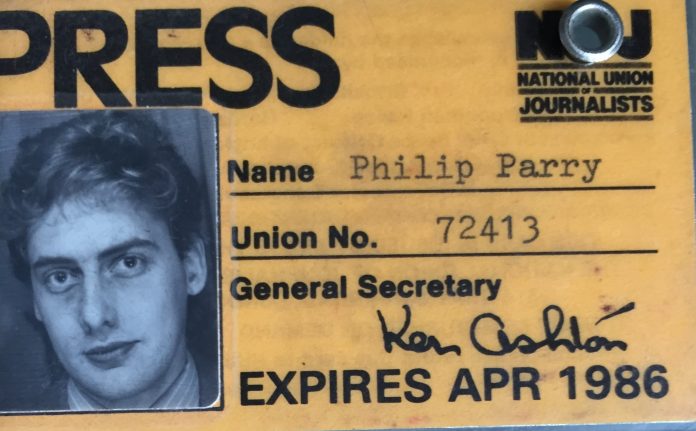- Polls apart - 4th March 2026
- Repeating on you… - 4th March 2026
- History man - 3rd March 2026
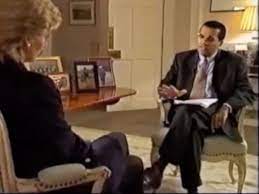
Here our Editor Phil Parry looks at the extraordinary fall out from the Martin Bashir/Princess Diana affair, as he mourns how a great institution where he spent 23 years has been brought low, and which has apparently even made a hash of setting up a ‘neutral’ journalistic ‘review’ investigating complaints.
Earlier he described how he was assisted in breaking into the South Wales Echo office car when he was a cub reporter, recalled his early career as a journalist, the importance of experience in the job, and making clear that the‘calls’ to emergency services as well as court cases are central to any media operation.

He has also explored how poorly paid most journalism is when trainee reporters had to live in squalid flats, the vital role of expenses, and about one of his most important stories on the now-scrapped 53 year-old BBC Wales TV Current Affairs series, Week In Week Out (WIWO), which won an award even after it was axed, long after his career really took off.
Phil has explained too how crucial it is actually to speak to people, the virtue of speed as well as accuracy, why knowledge of ‘history’ is vital, how certain material was removed from TV Current Affairs programmes when secret cameras had to be used, and some of those he has interviewed.

He has disclosed as well why investigative journalism is needed now more than ever although others have different opinions, how the current coronavirus (Covid-19) lockdown is playing havoc with media schedules, and the importance of the hugely lower average age of some political leaders compared with when he started reporting.
It is heartbreaking for me to see the way a major institution, where I spent 23 years of my working life, appears to be lurching from one enormous crisis to another.
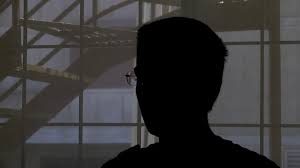
Yet that is exactly what seems to be happening with the BBC now, as it tries to make amends following the appalling Martin Bashir/Princess Diana affair.
Officials cannot even get the solution right, and a ‘neutral’ ‘review’ investigating the nature of a high-profile journalist ‘scoop’, which was forced on them by the UK government, is totally tainted.
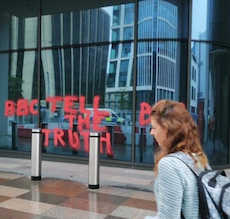 Key members of that review were senior executives at the corporation when Martin (who I knew), came back to the BBC, and was subsequently appointed as head of religion.
Key members of that review were senior executives at the corporation when Martin (who I knew), came back to the BBC, and was subsequently appointed as head of religion.
Why did they even rehire him? What were the reasons for his appointment to a senior role within the corporation?
These questions and others are supposedly being addressed by this ‘review’.
But is it REALLY a proper non-partisan examination of all the complaints and journalistic standards in this sorry affair, when senior officials were also at the BBC when Martin was rehired?!
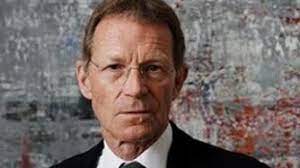
The review by the BBC board will be led by Sir Nicholas Serota, a former director of the Tate, who will be advised by the ex-BBC news executives Sir Robbie Gibb and Ian Hargreaves.
In a statement, the BBC board admitted the failings set out in Lord Dyson’s condemnatory 127-page report, saying that it hoped to ensure the “mistakes of the past” were not repeated, and that “…audiences had a right to expect better from the BBC”.

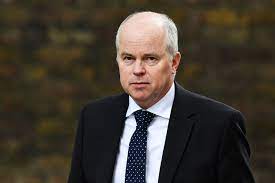
Let’s look at that review panel, ensuring that “mistakes of the past” are not repeated, shall we?
Sir Nicholas Serota, was appointed chairman of Arts Council England in 2017, the same year he joined the BBC board.
Sir Robbie Gibb, joined the BBC as a researcher after graduating and became head of BBC Westminster and editor of live political programmes, as well as deputy editor of BBC 2’s Newsnight.
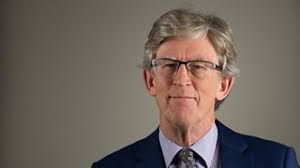
He joined the BBC board this month.
Ian Hargreaves, is a former director of BBC News and Current Affairs who worked for the broadcaster from 1987-91.
He joined the BBC board last year.
As the celebrated biographer and journalist, Tom Bower, put it pithily in the letters page of The Times on Tuesday: “Sir, How can the three BBC governors asked to investigate the circumstances surrounding the Bashir case be expected to give an objective critique? Two of them have been governors for some years and clearly never asked why Bashir was rehired despite widespread knowledge of his past”.
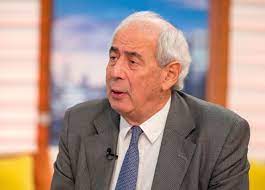
The creation of this panel is particularly bizarre coming after all that has happened, and with Martin Bashir’s interventions and character being roundly condemned by the eminent QC investigating his notorious interview for BBC TV Panorama (on which I have worked) with Princess Diana.
In the damning report last week, Lord Dyson also exposed details of the BBC’s subsequent “cover-up”, which had led it to fall “short of the high standards of integrity and transparency which are its hallmark”, and that there had been a “woefully ineffective” internal investigation a year later.

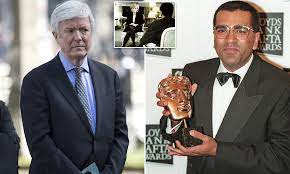
Martin rejoined the BBC in 2016, before a year afterwards being made religion editor following another ‘review’ led by (then BBC Director-General) Lord Tony Hall of Birkenhead, who knew that the man at the centre of it all, had used fake bank statements to secure the now-notorious interview with Princess Diana.
Julian Knight, MP, the chairman of the Commons Digital, Culture, Media and Sport Committee, has confirmed that he was writing to the present Director-General, Tim Davie, to find out why Martin was allowed to rejoin the BBC.
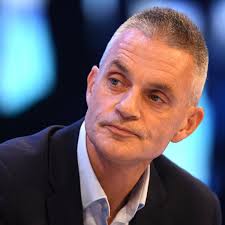
“In the wake of the Dyson report there are serious questions still left to answer. Namely, why was Martin Bashir rehired, with the BBC knowing what they knew? I am writing to the BBC’s Director-General, Tim Davie, for urgent answers”, he has said.
A grovelling apology from the BBC after the disgraceful behaviour of the past was officially slammed, has plainly not been enough.
Yet Tim Davie, had done his best, saying: “The BBC should have made greater effort to get to the bottom of what happened at the time and been more transparent about what it knew. While the BBC cannot turn back the clock after a quarter of a century, we can make a full and unconditional apology”.
Later he reiterated a “full, unconditional apology” to Matt Wiessler, the graphic designer who had complained he was sidelined by the broadcaster after trying to expose Martin Bashir’s methods.

It just seems extraordinary to me, that hard on the heels of all this, the scrutiny of journalistic standards is itself contentious!
BBC chairman Richard Sharp told the Radio Four programme World at One: “I take comfort from the fact that Martin Bashir is no longer here. I don’t take comfort yet from understanding why he was rehired. We will find that out”.
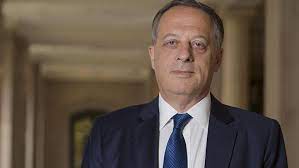
Asked what he knew of the rehiring, including whether due diligence was carried out, he said: “I actually don’t know, that is being examined by the executive and they will report to the board on that. I want to see the facts”.
All of this will only embolden those who say the BBC licence fee (a tax) should be frozen or even cut, for the next five years.
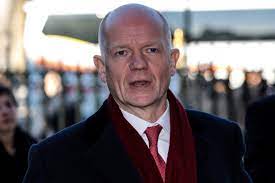
This whole business has come at an extremely bad time for the corporation, as the UK Government is currently in negotiations with it over the future of the fee – currently £159 a year.
As former Conservative Party leader William Hague said of the BBC in The Times on the same day as Mr Bower’s contribution: “…its ability to function as an institution known for integrity and truth is now in question. The health of our democracy requires that to be put right”.
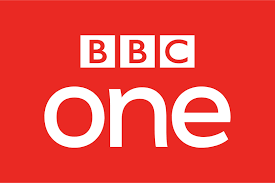
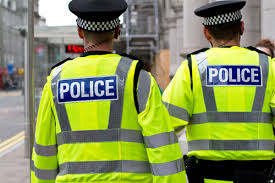 The police are looking into this shameful episode as well.
The police are looking into this shameful episode as well.
Scotland Yard said it would assess the contents of the investigation by Lord Dyson to ensure there is no “significant new evidence” to support a criminal investigation.
The Prime Minister has got in on the act, too, with Boris Johnson saying he was “very concerned”, and that he hoped the BBC “will be taking every possible step to make sure that nothing like this ever happens again”.
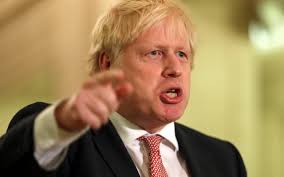
As one seasoned former executive with the corporation told me, once the truth emerged: “This level of incompetence is tragic. You can’t have this many editorial scandals – Savile, Leon Brittan, Cliff Richard, Newsnight’s erroneous exposure of an innocent Tory treasurer accused of child abuse, Brexit coverage, et al – and then wonder why the audience has departed. Sadly too many knew and said nothing”.
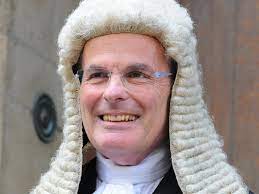
As Lord Dyson said in his report: “…there were ‘significant parts of Mr Bashir’s account that I reject as incredible, unreliable and, in some cases, dishonest’“.
The report disclosed how to get the interview, Martin had commissioned the fake bank statements, which purported to show that payments were being made into the accounts of a former head of security for Earl Spencer, the younger brother of Princess Diana.
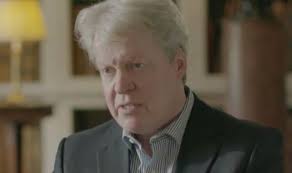
He was effectively playing on the paranoia of an emotionally damaged individual. The earl said that Martin showed him the documents, and produced other statements a few days later, along with “fabricated” information that payments were being made to Diana’s private secretary.
But in a letter to Martin the day after the BBC Panorama broadcast, Lord Hall (Director of News and Current Affairs at the time) praised his “skill, sensitivity and excellent judgment . . . I also think you have carried yourself during this whole episode in absolutely the appropriate fashion. You have changed the way we report the monarchy”.
 For me, a ‘neutral’ ‘review’ of why this, and other controversies, happened at all, should be exactly that – neutral.
For me, a ‘neutral’ ‘review’ of why this, and other controversies, happened at all, should be exactly that – neutral.
It shouldn’t be compromised…
Phil’s memories of his astonishing decades long award-winning career in journalism (including his years at the BBC) as he was gripped by the rare neurological disabling condition Hereditary Spastic Paraplegia (HSP), have been released in a major book ‘A GOOD STORY’. Order the book now!









